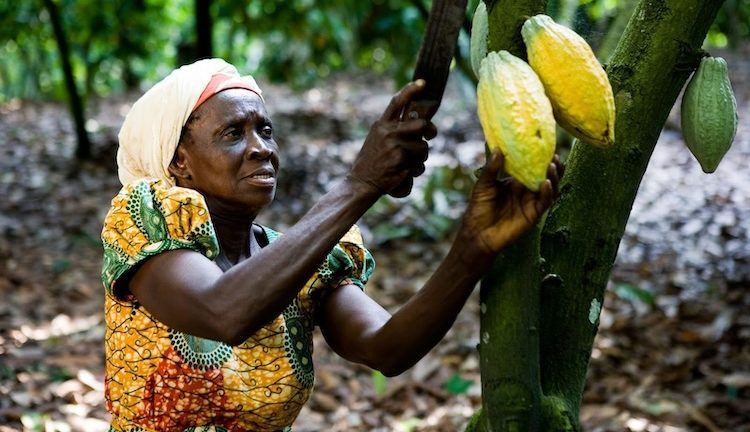By Lisa Vives, Global Information Network
NEW YORK | 13 May 2024 (IDN) — Everyone or almost everyone loves chocolate, making it imperative to follow Ghana’s production shortfall and similar problems in the Ivory Coast.
These shortfalls have fuelled historic surges in cocoa prices, forcing customers to shell out more for familiar chocolate bars and other tasty sweets.
Samuel Adimado, president of Ghana’s cocoa buyers’ group, estimates that current crop figures were “shattering” and member firms are struggling to remain in business.
After the Ivory Coast, Ghana is the world’s second-largest exporter of cocoa beans.
Normally, investment in agriculture is seen as humanity’s best hope of achieving at least two UN global goals: Ending Poverty and Zero Hunger.
Agriculture is, for Ghana, an overwhelming priority; it employs around 45 percent of the labour force—more than any other sector—and contributes some 15 percent of the GDP.
As many as 800,000 people work directly in the plantation of cocoa, but nowadays, many more are involved in the commercial, industrial and service sectors.
Cocoa is iconic for Ghana, not just in terms of economics but also for its national identity, social history—and even its climate future. As the saying goes: “Ghana is cocoa, cocoa is Ghana”.
Under normal conditions, cocoa production in Ghana is considered environmentally friendly, as beans grow without watering and need little additional pesticides or herbicides.
Droughts and rising temperatures are already affecting West Africa
However, more frequent droughts and rising temperatures are already affecting West Africa. They may even turn large swathes of the region into savannas by 2050, according to the UN Intergovernmental Panel on Climate Change.
Michael Ekow Amoah, deputy director of research at the Ghana Cocoa Board (COCOBOD), noted: “The challenge that we cannot run away from is climate change. For Ghana, this means that farmers have great difficulty in planning their activities: some plant too early before the rains, some plant too late.”
“Today in Ghana the average age of a cocoa farmer is 55 which is not too good for the future,” says Amoah. COCOBOD has launched a “Cocoa Farmers Pension Scheme” as a means of attracting the youth.
Last but not least, a final critical issue is land tenure. Most cocoa farmers do not own the land they work on since they are migrant farmers. This does not ensure proper land use practices and adequate benefit sharing among stakeholders.
As the surge in prices filters down to retail shelves, chocolate makers like Hershey expect to see a further slowdown in demand for their products from cash-conscious customers.
“We haven’t seen this kind of reduction in recent times,” said the president of Ghana’s cocoa buyers’ group. “Rising global cocoa prices have incentivized smuggling, meaning losses could be higher this season. [IDN-InDepthNews]
Photo: More women are engaged in cocoa farming in the Bekwai District in the Ashanti Region of Ghana. Source: Graphic Online, Ghana.


